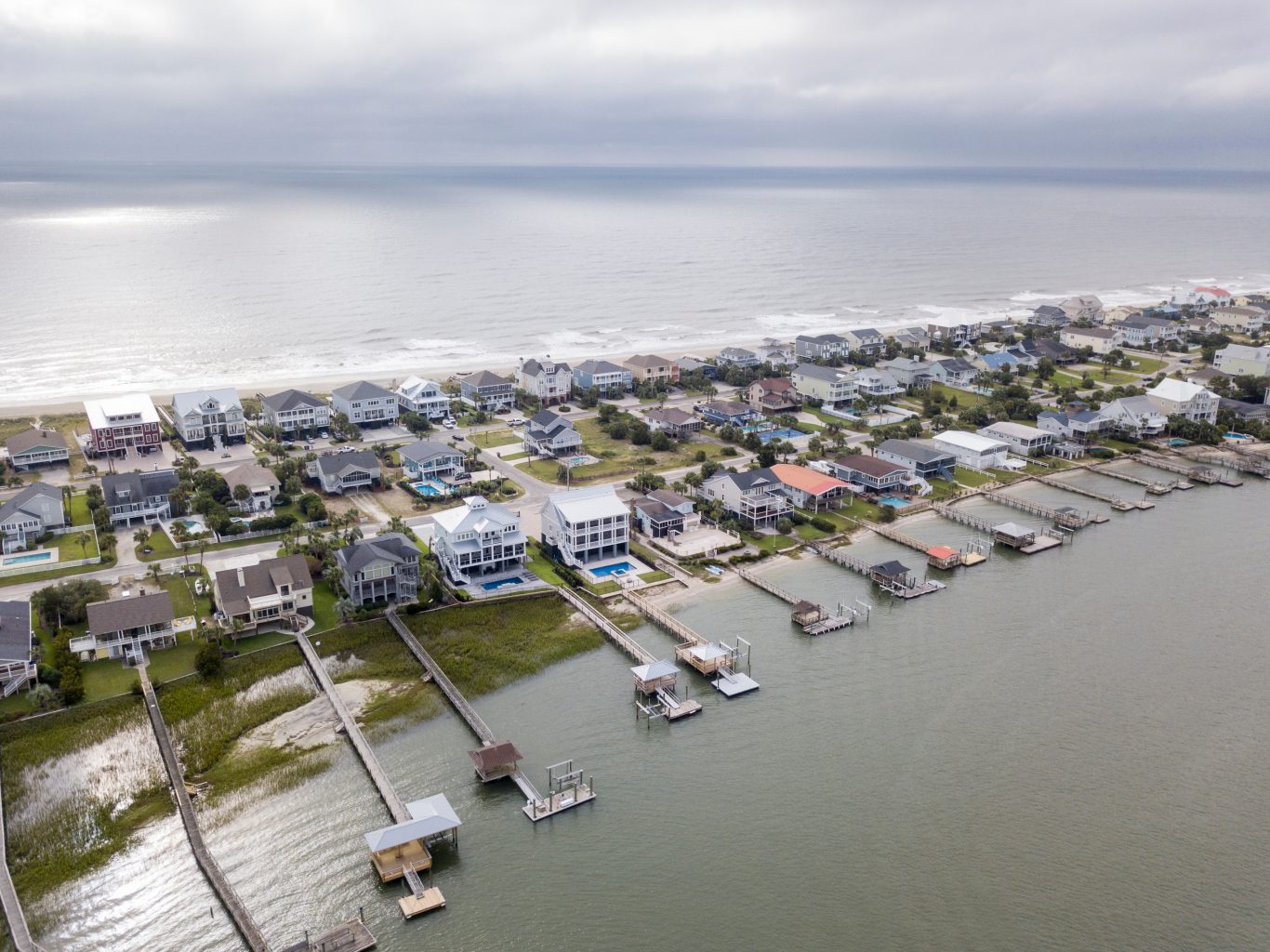How Coastal Living Affects Your HVAC System

Living in Myrtle Beach comes with many perks—stunning ocean views, a vibrant coastal lifestyle, and the soothing sounds of the waves. However, a coastal home also presents unique challenges for homeowners, particularly when it comes to maintaining HVAC systems. The salty air, high humidity, and fluctuating temperatures can take a toll on your HVAC equipment, leading to decreased efficiency and a shorter lifespan. Here’s how coastal living affects your HVAC system and what you can do to keep it running smoothly in the Grand Strand region.
The Impact of Coastal Elements on Your HVAC System
1. Salt Air and Corrosion
One of the most significant challenges of coastal living in Myrtle Beach is the salt-laden air. Salt can corrode metal components in your HVAC system, such as coils, wiring, and other vital parts. This corrosion process accelerates due to the constant exposure to salty sea breezes. Because of this, it can lead to reduced efficiency and frequent breakdowns. Over time, the damage can become severe enough to necessitate costly repairs or even a complete system replacement. Regular inspections and maintenance can help identify and mitigate these issues before they escalate.
2. High Humidity Levels
Myrtle Beach is known for its high humidity, which can affect your HVAC system in several ways. Excess moisture in the air makes your HVAC system work harder to maintain a comfortable indoor temperature, leading to increased wear and tear. This extra strain not only reduces the lifespan of your heating and cooling equipment but also results in higher energy bills. Additionally, high humidity can promote mold growth within your HVAC system, compromising indoor air quality. Ensuring proper humidity control is crucial for the longevity and efficiency of your system.
3. Sand and Debris
Coastal winds in Myrtle Beach often carry sand and debris, which can find their way into your HVAC system. These particles can clog filters, reduce airflow, and damage internal components, leading to decreased efficiency and potential breakdowns. Sand and debris accumulation can also cause your system to overheat, further exacerbating wear and tear. Regularly checking and cleaning your filters can help prevent these issues, ensuring smooth and efficient operation of your air conditioning and heating system.
4. Temperature Fluctuations
Coastal regions like Myrtle Beach often experience temperature fluctuations, especially between day and night. These variations can force your HVAC system to work harder to maintain a consistent indoor climate, further contributing to wear and tear. Frequent adjustments in operation can strain the system, leading to a higher likelihood of breakdowns. It’s essential to have a reliable and well-maintained HVAC system to cope with these temperature swings, ensuring year-round comfort in your Grand Strand home.
What You Can Do to Protect Your HVAC System
Regular Maintenance
The best defense against the harsh coastal elements is regular maintenance. Schedule professional HVAC inspections with Beach Air HVAC at least twice a year—once before the cooling season and once before the heating season. Regular maintenance can help identify and address potential issues before they become major problems.
Use Anti-Corrosion Treatments
Invest in anti-corrosion treatments for your HVAC system. Coatings and sprays designed to protect against salt air corrosion can significantly extend the life of your equipment. These treatments are particularly beneficial in the salty and humid environment of South Carolina’s coastal regions. Speak to your HVAC professional about the best anti-corrosion options for your system, and consider applying these treatments regularly to maintain optimal performance.
Clean and Replace Filters
Sand and debris can quickly clog your HVAC filters, reducing airflow and efficiency. Check your filters monthly and clean or replace them as needed. This simple step can improve your system’s performance and help it last longer. For homeowners in Myrtle Beach, where coastal winds frequently carry particulate matter, staying vigilant about filter maintenance is essential to keep your air conditioning and heating system running smoothly.
Protect Outdoor Units
Shield your outdoor HVAC units from the elements by installing protective covers or enclosures. While these should not restrict airflow, they can provide an extra layer of protection against salt air, sand, and debris. In the coastal environment of Myrtle Beach, protecting your outdoor units can help prevent premature corrosion and damage. While a cover is not completely necessary, if you are not checking your unit often, it might be a good investment – especially for those vacation homes!
You should also ensure the area around your outdoor HVAC unit is clear of debris and other coverage. Good airflow is essential for optimal performance and preventing unnecessary strain on your system. In Myrtle Beach, where coastal winds can bring various forms of debris, maintaining a clear area around your unit is especially important. Regularly trimming back plants and removing accumulated debris can help your system function efficiently and reduce the risk of damage.
How Coastal Living Affects Your HVAC System with Beach Air
Living in Myrtle Beach offers an idyllic coastal lifestyle, but it also requires extra care for your HVAC system. By understanding the unique challenges posed by coastal living and taking proactive steps to protect your equipment, you can enjoy a comfortable home environment year-round. Enjoy the coastal breeze, but don’t forget to give your HVAC system the attention it needs to withstand the salty air and high humidity on the Grand Strand!
At Beach Air HVAC, we’re committed to providing top-notch service and expert advice to help you get the most out of your HVAC system. Beach Air HVAC are your trusted local HVAC technicians ready to take on any problems you may have year-round. Learn more about how we can help or give us a call at 843-796-3798 for a consultation.
